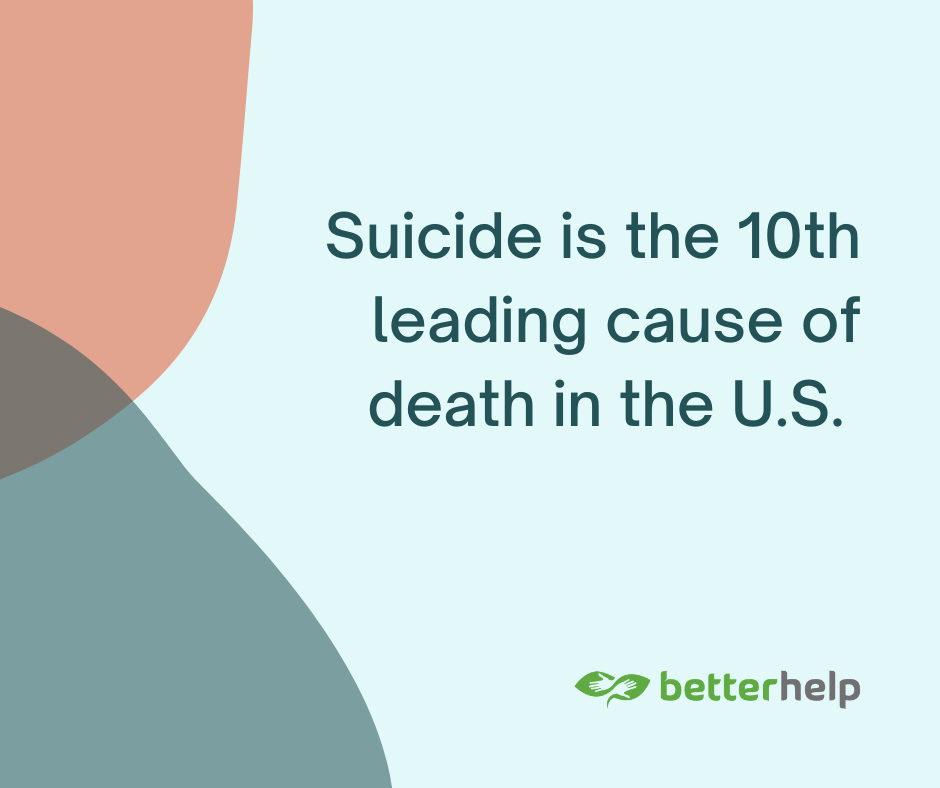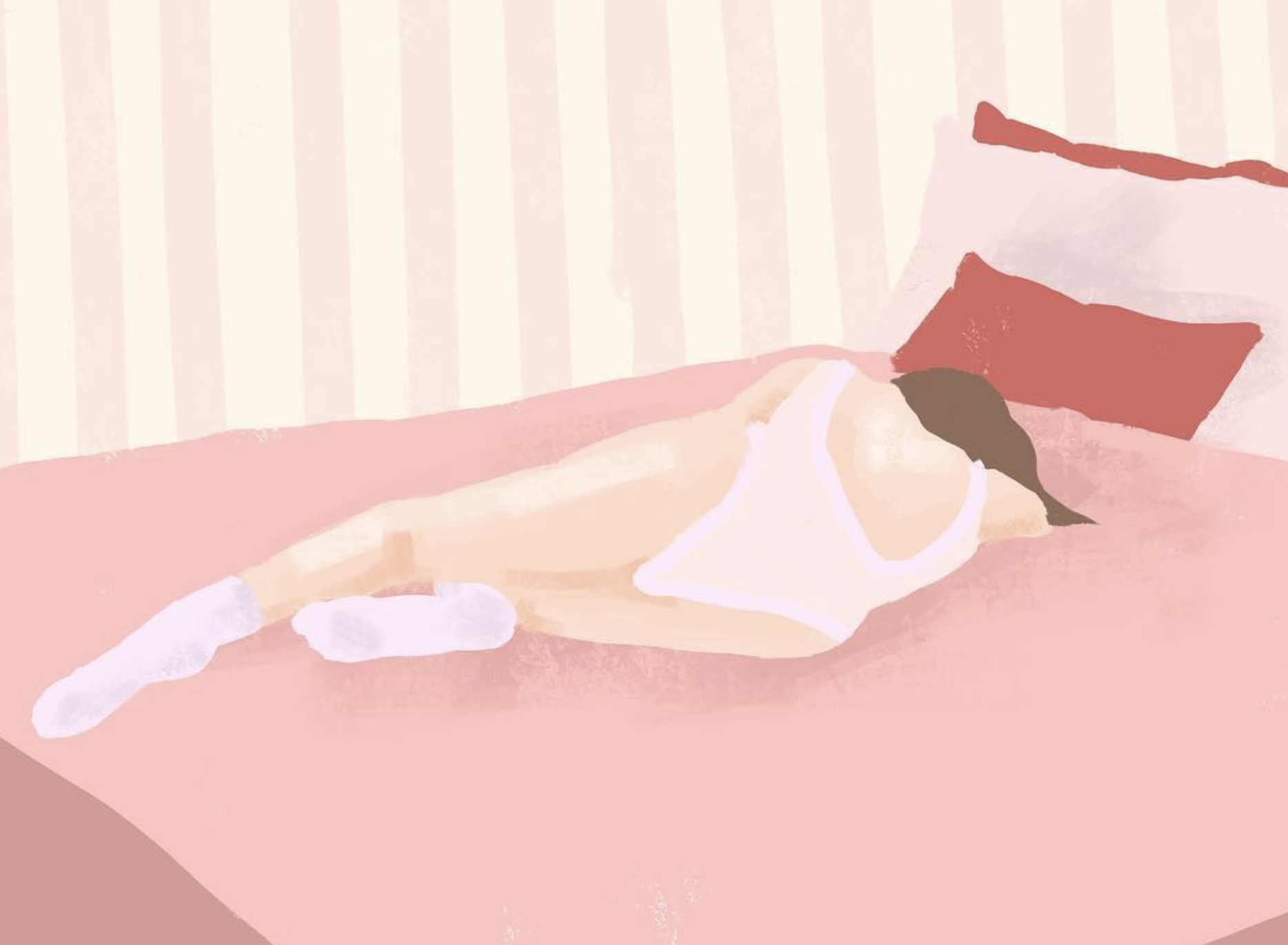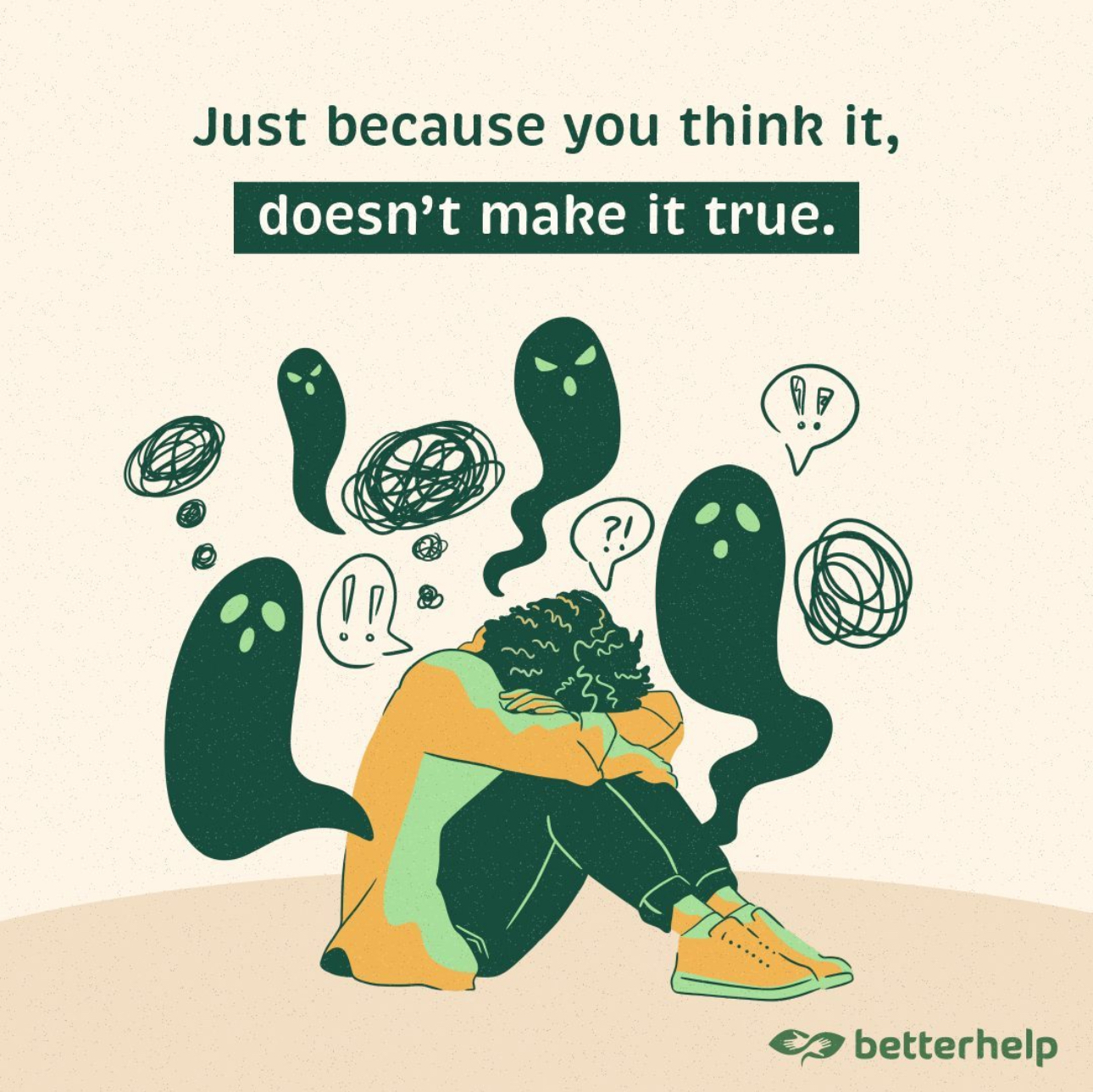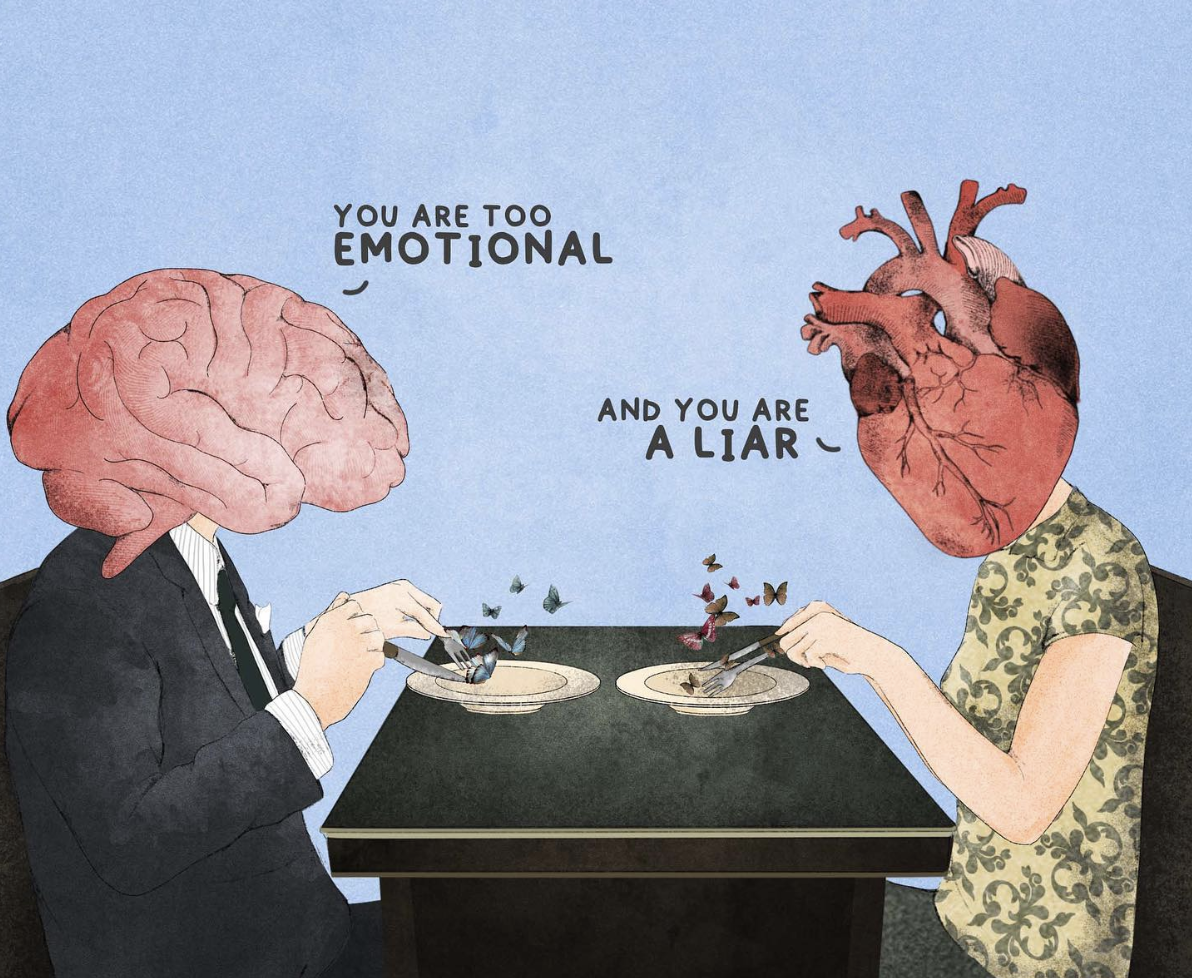{This article is written in partnership with BetterHelp. They’re dedicated to helping folks get easier, more affordable access to mental healthcare, and we’re proud to work with them. ~ ed.}
The beginning of my last video therapy session through BetterHelp began as most do—with my wonderfully upbeat and wildly compassionate therapist happy to see me and asking how I was.
This time I couldn’t even muster the knee-jerk-fake “okay” that I’d normally say when someone asks me that question, so I went straight to the truth. Things were not okay. They weren’t even close to good.
It had been a rough couple of weeks since I last talked with her—a couple of weeks of crying myself asleep and waking up still crying, as if a pause button had been pushed for a few hours on a song of despair while I was sleeping.
My sadness didn’t skip a beat.
Get Matched with a Therapist within 48 Hours & Take 50% off >>
When she asked me why, I wasn’t entirely sure; but a lingering thought I’d had one of those somber mornings stuck with me. A serious thought that once it crossed my mind, I couldn’t forget.
“I promise I’m not suicidal—but what’s the point? I’m not living, so what’s the fucking point?”
Then the floodgates opened. I started bawling and couldn’t stop. I couldn’t stop because the reality of that “but” sunk in and for the first time in over 26 years, I wondered.
Was I actually suicidal?
Thankfully, my therapist never questioned this during our session.
We talked about how much I was struggling to function. It seemed my depression had gone from mild to moderate and was now teetering on the edge of severe.
It was quite the emotionally charged talk (with many tears) so at one point, she held two thumbs up and suddenly I saw colorful fireworks exploding across my screen. It surprised me, and at first I thought I was seeing things, but then she made a heart symbol with her hands and I saw a bunch of red hearts fill up the screen.
Laughing at this silly thing instantly brought me out of my negative mindset and she told me she just wanted to make me smile. Aww. I didn’t know how badly I needed that.
I can’t stress enough how wonderful it is to have someone like my therapist to talk to when times get really hard. She knows more about me than any other person in my life. I’ve never been this comfortable expressing my true self to anyone, including best friends and even my husband.
Try BetterHelp’s Online Therapy & Take 50% off >>
I never realized how valuable having a person like this would be for me, so I’m beyond grateful to BetterHelp for connecting us and for making it easy chat with her whenever I need it.
To ease anyone’s worried mind—no, I am not suicidal.
I’m not questioning or doubting this, ya’ll. My therapist believes me which is enough, but I’ll go ahead and reiterate my promise because I know this is a scary and uncomfortable subject that many people don’t know how to deal with or talk about honestly.
I do not think about not wanting to live nor do I want to die.
I have not thought about ways to die, nor have I made a plan to take my life.
I do not think about disappearing or not wanting to exist.
I do not wish to go to sleep and never wake up.
Capisce? Understood? We good?
The Two Types of Suicidal Thoughts or Ideation
The last time I had similar feelings, I was 20 years old. It was the night that I knew my marriage to my high school sweetheart was over.
I was driving home and remember thinking if I turned my car into the oncoming headlights, I wouldn’t feel the intense pain of loss anymore. All I had to do was yank the steering wheel, and it would all be over.
The thought in that dark moment was fleeting. I’ve never had another one like it, but my recent “what’s the point” feeling seemed like something to pay attention to.
I wanted to learn more, so I went down a rabbit hole of research and came across a term I’d never heard: passive suicidal ideation. There are two types of suicidal ideation, passive and active, and I learned that there can be a thin line between these types of thoughts.
Passive suicidal thoughts are thoughts you have about dying without actually having a plan. Active suicidal ideation includes making plans to end your life.[i]
“Passive suicidal ideation can occur when an individual no longer has the motivation to live, but does not have a clear plan to take their life.” ~ Charlie Health Primary Therapist Meghan Jensen, LPC
Suicidal ideation is relatively common.

One study reported that 10.6 million adults (people over age 18) in the United States, or 4.3% of the U.S. adult population, experienced suicidal thoughts. Among children (before age 18) in the United States, 18% thought about attempting suicide.[ii]
Since it’s understudied, there isn’t a clear understanding of what causes passive suicidal ideation, but a 2020 meta-analysis of 86 studies concluded that its prevalence is associated with significant psychiatric comorbidity (when a person has two or more mental disorders).[iii]
We don’t how common passive suicidal thoughts are because most people don’t even know it’s happening or report it when they do. Even daydreaming about death can be a form of passive suicidal ideation and some people use it as a coping mechanism to deal with difficult life circumstances.[iv]
The thought of driving into oncoming traffic 26 years ago could be considered passive ideation because I felt like I didn’t want to live in that moment. The next thought of how I could make that (death) happen was technically a plan and had I any true intention of harming myself that night, it might have crossed the line into active ideation.
I never really wanted to die though, and I did not continue having these types of thoughts. It was a one-and-done type of deal.
My recent questioning—on the point of being alive when I’m not living—didn’t feel like it qualified as any kind of suicidal ideation, but I wanted to check in again with my therapist because my motivation to actually live my life was feeling quite low.
Take the Quiz & Connect with a Therapist from the comfort of wherever you are >>
I’d been experiencing a depressive episode which always causes me to isolate from the world and people that I love, keeps me from taking care of myself, takes away my joy and love for life, and destroys my hope for lasting healing.
When I’m in the midst of episodes like this, motivation to do anything at all ceases to exist.
I love that BetterHelp allows ongoing communication and messaging with your therapist at any time. I do not have to wait until my scheduled therapy session to ask questions, get advice, or share insights and it’s a huge perk!
I sent my therapist a message asking for literature on passive ideation with the assumption that she already believed that I wasn’t suicidal. Well folks, as you can imagine, she was immediately concerned for my safety and misunderstood my thoughts and intentions.
It was my fault, really. I thought my message to her was clear enough to put the suicidal subject to rest, but it wasn’t. Reading it back, boy, can I see why I scared her.
“Not gonna lie, I’m fishing for good news here to validate my strong belief that I am not suicidal.”
After rereading this sentence later, there’s no wonder she began worrying. It’s unfortunate that sometimes it takes a hindsight view for our vision to become perfect.
If I’d known about the worried worms inside, I never would have opened the can. But after some reflection and another therapy session to unpack everything, I actually learned something from the experience.
Childhood Wounds
Turns out, instead opening a can of stressed-out worms, what I’d actually opened was a deep-seated and scarred over childhood wound—the fear of not being trusted or believed.
Before I went back and reread our messages (and got my precious hindsight), I was angry with my therapist for not believing me.
I’d promised that I wasn’t suicidal and talking about this in our therapy session the week before had not led her to doubt me, so when she sent me a safety plan to fill out, I didn’t think much about it. She wanted it as a reference in the event that I begin to have suicidal thoughts.
Take 50% off your first month of BetterHelp >>
Okay, fair enough. No biggie.
But then she said we could set up an emergency session, shared the suicide hotline number, and asked, “Are you presently having thoughts of not wanting to be here?”
And it set me off.
My heart began racing, my face felt hot, and I felt anxiety building in my body. My fight survival mode was engaged. If it was possible to read tone in typed messages, the words of my short response would have sounded like they were being spoken forcefully through a clenched jaw.
“No, I promised you. I meant it. I should’ve clarified that I wasn’t researching passive ideation because I’m experiencing it. I thought I made it crystal-clear that I do not want to die. I want to live. I know about 988 and don’t need it. I also don’t need an emergency session.”
In that moment, I completely understood why so many keep these sorts of thoughts to themselves. My fingers angrily pounded out my next message to her quickly.
“People like me who might have one thought that makes them sad and worried don’t dare mention it because we’re automatically grouped into the ‘unsafe’ category and might get exposed to unexpected wellness checks and other uncomfortable things because they’re not trusted. I hate this so much.”
A rush of thoughts flooded my brain and sparked a familiar feeling of betrayal.
How could she ask me that? I thought she believed me. This is what I get for trusting her. This is what I deserve, no one ever believes what I say. I knew she was too good to be true. I can’t trust anyone with my true self. All it ever does is hurt me. I guess I’ve lost her now, too.
Whoa! Where the heck did that come from? It all happened so fast I didn’t even realize I was having these thoughts until much later—after I’d cooled down and observed my reaction with curiosity.
As fast as the anger came on, it went away just as quickly when my therapist thanked me for my clarifying response and apologized for the misunderstanding. I felt so much better after her message.
It made me feel worthy and loved. It made me feel seen.
Feel Seen with BetterHelp—where you may change therapists, easily. Get Matched >>
It’s amazing how something so simple as acknowledgment of a mistake and a genuine apology can change everything when we feel hurt. I don’t think I ever received that sort of love from adults growing up and rarely experience it even now.
I remember when and why I stopped trusting people and began hiding parts of myself.
I was eight years old and got in trouble for something I didn’t do. I pleaded with my mom to believe me because I was terrified of the coming punishment, but she was too distracted with her party plans that night to stop and listen to me. She didn’t recognize how badly I needed to be heard and understood by her.
I stoically took my punishment and was so angry over the injustice that I refused to make a sound as I cried. In that moment, I felt betrayed and knew that I could never trust her with my true thoughts and feelings ever again.
Her lack of trust in me created the same lack of trust in others from that day on. Secrets have often overruled my desire to be completely honest with people ever since. I’m only now starting to understand how very little I trust myself too.
I wish I would’ve recognized how much this moment in my childhood hurt me and had the bravery to talk to my mom about this before she died. Maybe she would have finally understood me and apologized. Maybe I wouldn’t still be carrying this wound around today.
Maybe I wouldn’t feel like I have to hide myself from people out of fear of criticism or rejection.
Maybe I wouldn’t feel the need to over explain when I suspect people are doubting me.
Maybe I wouldn’t become angry and defensive when questioned or accused unfairly.
Maybe I wouldn’t avoid confrontation and would be better at setting boundaries.
Of course, I’ll never know if my mom would have ever owned up to her mistake and apologized, but it doesn’t matter. I believe she did the best she could at her level of awareness. Mom had her own demons, and I forgave her a long time ago.
My therapist is making up for lost time, though.
She gives me a safe space to be myself—my whole self. Even my bad, scared, sad, ugly crying, irrational and sometimes pissed-off, potty-mouthed self. I don’t have to hide anymore.
Her support never wavers.
It’s okay to be angry with her and to express uncomfortable thoughts and feelings; she still shows me compassion.
She continues to be one positive relationship that I never feel the need to doubt. She gives me the love I needed growing up, and she’s teaching me to love myself.
My god, what a miracle therapy is.
~
I cannot thank BetterHelp enough for bringing therapy into my life. If you or someone you love is experiencing depression or suicidal ideation, please consider signing up for online therapy with BetterHelp.
You do not have to suffer alone.
If you are experiencing active suicidal thoughts, are in a crisis or another person is in danger, please call or text the Suicide and Crisis Lifeline: 988.
BetterHelp has a list of more resources to get immediate help now HERE.
~
 Share on bsky
Share on bsky







Read 4 comments and reply